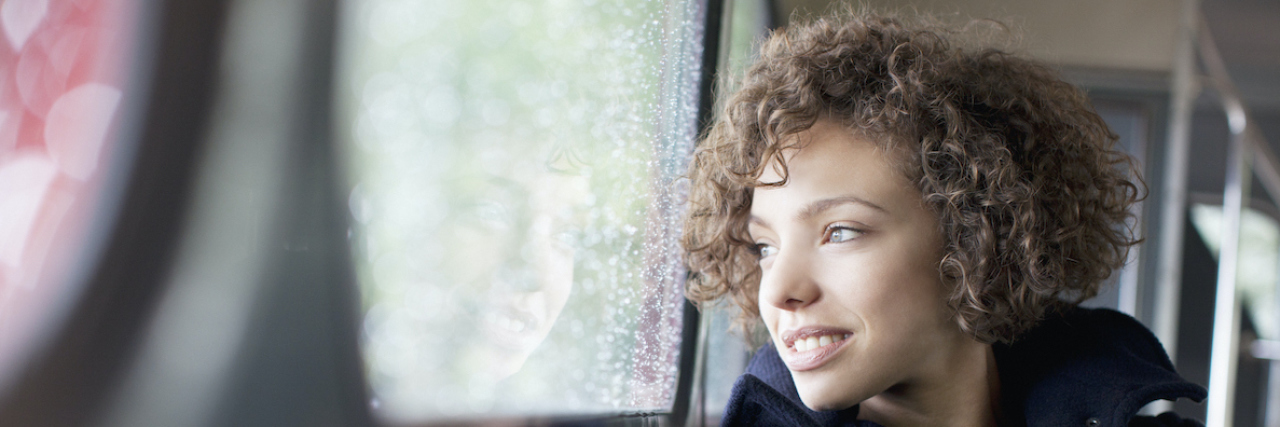I didn’t know if I was going to post here, I read lot’s of different stories posted and they’ve helped tremendously. I could use some advice or thoughts. I’m 26 with fibromyalgia, Sjögren's syndrome, raynards syndrome, rheumatoid arthritis, and hyperglycemia. I also deal with ptsd, anxiety and panic attacks, acrophobia, and bpd. I’m also very alone and going through some serious emotional pain as well. My supposed to be partner who blames me for everything! Literally he is in complete charge of everything but blames me for money issues. It makes absolutely no sense on his reality to me. I beg him for help and attention and I get more insults and anger. I’m really to the point of wanting to just die. And he doesn’t care about that at all. I feel absolutely alone and I’m overwhelmed with fear and sadness. He also attacks me from time to time. He says it’s my fault and I usually end up apologizing for the whole situation. I’m lost and idk what the hell to do! Please some advice 🥹❤️
Acrophobia
Acrophobia
What is this thing called "Hope"? #seekingknowledge
What is this thing called hope? Yes, this is a serious question. What frame of reference do you use to explain something to someone who has never know or seen hope? We liken the situation to finding a single Waldo in a swarm of people who all look slightly like Waldo. But none ARE Waldo.
We are, at this point, 47 days into our 2 new Antidepressants, 21 days into our Antipsychotic and no change other than we sleep an added 1 to 2 hours a night. We are grateful for that. Our meds are increased every 2 weeks. I, since none of the other want to attend at this time, do video chat with at least 3 Doctors every week. The all tell me that hope will help us in this wait and see pattern we currently find ourselves stuck within.
We believe that everything in our universe has a counter balance. Night has Day. These are concrete, provable, repeatable facts available to establish what distinguishes Night from Day. Where "Hope" along with, it's 1st cousins the other emotions and "feeling" are all abstract concepts not grounded by facts.
What reference points does one use when trying to describe abstract concept of "hope" to one who has never seen or experienced it in their lifetime. How would you describe colours to a person who has never seen them? We have as little insight into what "hope" or any of the "emotions" are, at this point. What is this thing called "Hope" and where do we find it?
#SexualAbuse #SexualAssault #Childhoodneglect #DomesticAbuse #DID #raynauds #Fibromyalgia #MyalgicEncephalomyelitis #RheumatoidArthritis #DegenerativeDiscDisease #Hypertension #Trichiasis #irritableboweldisease #GeneralizedAnxietyDisorder #AnxietyDisorders #PanicAttacks #Agoraphobia #Insomnia #Rosacea #Claustrophobia #heartmurmur #ComplexPosttraumaticStressDisorder #Allergies #Dyslexia #OCD #Trichotillomania #cleithrophobia , #IntrusiveThoughts #SuicidalIdeation #haphephobia #EatingDisorder #MajorDepressiveDisorder #SocialPhobia #Acrophobia #Psychosis #DissociativeDisorder #audiohallucinations #visualhallucinations #intervert #raynauds
Anxiety, Fear, Panic, and Phobias
I’ve heard it said that you know when you’re a problem drinker when your drinking causes you problems, whether of the emotional, legal, financial, or several other varieties.
Similarly, I think anxiety, fears, panic, and phobias are problems only when they cause you problems.
Let me unpack that a bit.
phobias are considered to be a type of anxiety disorder or panic disorder. For example, social anxiety is sometimes defined as social phobia. Everyone has anxieties. Many people have at least one phobia. And most people can avoid these triggers with little or no effect on their daily lives. There are habits they can cultivate to avoid the things that make them anxious or phobic.
For instance, someone with acrophobia, a fear of high places, isn’t usually incapacitated by a stepladder, and can fairly easily avoid standing on cliff edges, rotating top-floor restaurants, and hotel rooms over the first or second floor. (When the anxiety/phobia extends to fear of flying, or aerophobia, the person can limit or eliminate air travel from their lives, usually without much difficulty.)
Crippling phobias, however, are generally classed as mental illnesses. My panic around bees (apiphobia) does not rise to that level; I would call it an anxiety reaction or a panic attack, not a phobia. It usually only manifests as bodily stiffening, tremors, and immobility, and pleas for anyone in the area to shoo away the offending insect. (I once took a beekeeping class to try to get over my phobia. Big mistake. Didn’t work.)
agoraphobia (fear of unfamiliar environments or ones where you feel out of control), however, can be socially and psychologically crippling. The Mayo Clinic says that agoraphobia “can severely limit your ability to socialize, work, attend important events and even manage the details of daily life, such as running errands.” (Technology has made these constrictions less onerous, what with doorstep delivery and Skype.)
Anxieties as a symptom of mental illness are harder to define. While some anxieties have triggers, others simply don’t. “Free-floating” anxiety comes on unexpectedly, like the depressions and manias of bipolar disorder. This doesn’t mean that the anxiety isn’t real. It certainly is. It just means that the anxiety has no identifiable cause such as high places or bees. It is simply (or not so simply) a panic attack, which the Cleveland Clinic says is “sudden, unreasonable feelings of fear and anxiety that cause physical symptoms like a racing heart, fast breathing, and sweating. Some people become so fearful of these attacks that they develop panic disorder, a type of anxiety disorder.” They add, “Every year, up to 11% of Americans experience a panic attack. Approximately 2% to 3% of them go on to develop panic disorder.”
Sometimes I have anxiety that is attributable to triggers, such as financial difficulties, which are relatively easy for other people to understand. Who wouldn’t be anxious when the bank account is dry and a bill is due?
Other times, free-floating anxiety or panic simply descends on me, with nothing that triggers it. It’s an awful feeling, like waiting for the other shoe to drop when there has been no first shoe. Like a cloud hovering around me with the potential for lightning bolts at any time.
The thing is, I don’t know how to get rid of my anxieties, fears, or phobias. There are desensitization procedures that are supposed to work by getting one used to the trigger gradually. (I think that was my idea behind taking the beekeeping class. One of them, anyway.) There are antianxiety medications, including antidepressants and benzos, designed to take the edge off, if not remove the anxiety. (I take antianxiety medications. I’m still afraid of bees. Not that it affects my daily life much, but I’m never likely to visit that island off Croatia that’s covered with lavender.) For phobias, Cognitive Behavioral Therapy (CBT), as well as exposure therapy, has been recommended. This is usually a short-term procedure, according to the Mayo Clinic. But I have an aversion to CBT.
Still, despite my therapy and medications, I have to live with my anxiety and phobias. I’ve probably not reached the point where the anxiety causes me severe problems, like bankruptcy, though I have been known to overdraw my checking account on occasion and run my credit card up too high. These, of course, are signals that I may have a problem or am beginning to have one. It’s something to explore with my therapist, anyway. Maybe she can suggest ways I can deal with my anxieties before they turn into more significant problems.
I’m done . how do I keep going
I’m a single parent of 3 teens. one with vision impairment and low grade autism, another troubled with addiction. I have fibromyalgia, ptsd, anxiety, depression, acrophobia and other crap . I fight every day, I rise against the odds , I face schools, drs, psychologists, courts, specialists and all the crap day to day that comes with teens and parenting.
my fight is a lonely one as since marital separation my work has tripled, yes she used to be a trooper and tried to help me with health issues. I have no friends, family or help , I am in an abyss . I have no energy to fight but I do every day. I have been considering again and maybe fantasising about leaving this world. I CANNOT, I have three beautiful souls I am the rock for , but I’m mush , I’m spent , I’m broken.
I just can’t be in constant pain anymore, the fake smiles no longer suffice.


